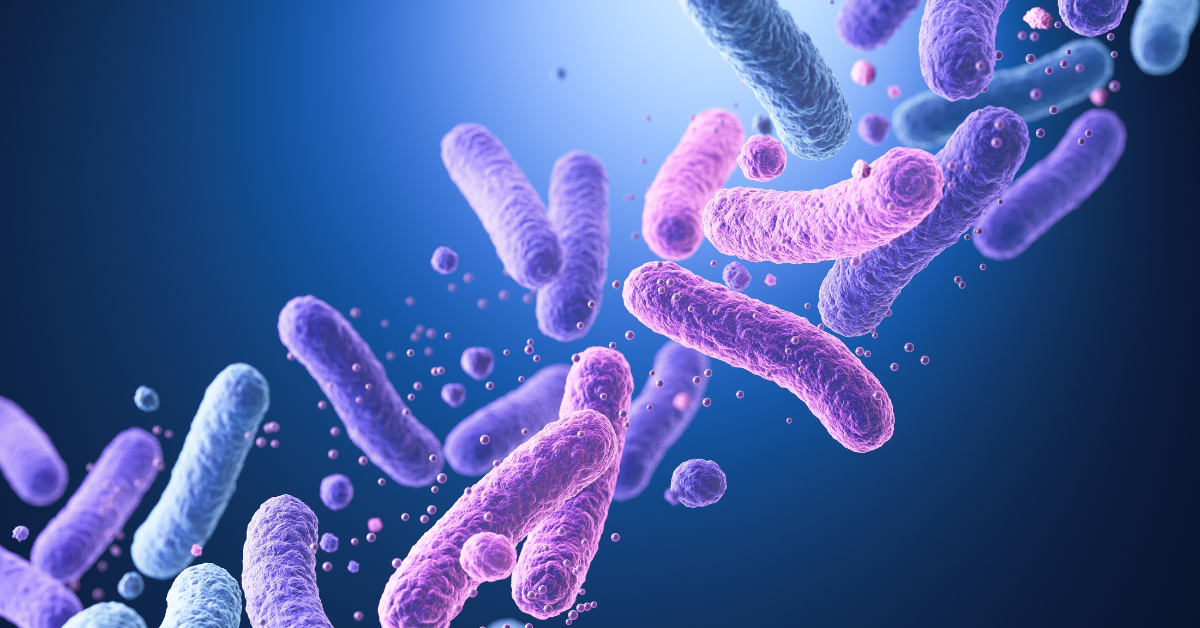The gut is considered our "second brain". Two organs distant from each other and with different functions actually have a lot in common.
In fact, the gut contains a vast autonomous nervous system that constantly communicates with the brain. This enteric nervous system is responsible for many vital functions, such as digestion and nutrient absorption, and can influence our mood and overall well-being. The connection between the gut and the brain is so strong that a healthy gut can help improve our mental and physical health.
.jpg?width=800&height=533&name=Probiotici_benessere_intestino_alimentazione_UniSR%20(3).jpg)
The intestinal flora
The intestinal flora, or intestinal microbiota, is the set of microorganisms that populate our gastrointestinal tract. This complex and dynamic ecosystem is fundamental for numerous physiological functions, including food digestion, vitamin synthesis, modulation of the immune system and protection against pathogens. A regular and healthy intestine is essential for the general well-being of the body.
The intake of probiotics through foods that are rich in them can help maintain and restore the balance of the intestinal flora, especially in situations of stress, illness or use of antibiotics, which can alter the composition of the microbiota and lead to intestinal dysbiosis, an alteration of the relationship between beneficial and potentially pathogenic bacteria or a loss of the functional interactions that maintain the homeostasis of the intestinal ecosystem.
.jpg?width=800&height=450&name=Probiotici_benessere_intestino_alimentazione_UniSR%20(2).jpg)
In fact, the microbiota plays a fundamental role in the modulation of the immune system. Specific probiotics work by competing with pathogens for nutrients, thus supporting the development of immune defenses and strengthening the integrity of the intestinal barrier. In particular, the production of key metabolites such as short-chain fatty acids by probiotics exerts protective effects against chronic diseases such as obesity, type 2 diabetes and cardiovascular diseases. the homeostasis of the intestinal ecosystem.
.jpg?width=800&height=533&name=Probiotici_benessere_intestino_alimentazione_UniSR%20(6).jpg)
The effectiveness of probiotics
Scientific studies have shown that probiotics can be effective in treating and preventing several gastrointestinal conditions, such as irritable bowel syndrome, infections and antibiotic-associated diarrhea.
Furthermore, the bidirectional communication between the gut and the brain has led to the development of numerous evidence suggesting a role for probiotics in the modulation of mood and psychological disorders, such as depression and anxiety.
.jpg?width=800&height=474&name=Probiotici_benessere_intestino_alimentazione_UniSR%20(4).jpg)
Fermented foods, such as yogurt, kefir, sauerkraut, fermented vegetables, and miso, are excellent sources of natural probiotics. Alternatively, it is possible to use probiotic supplements, such as Bifidobacterium and Lactobacillus, evaluating the specific type for your needs with your nutritionist.
Taking care of your intestines is essential for the correct functioning of our body, and taking probiotics through a healthy and targeted diet can represent a valid support for achieving a state of health and balance.
.jpg?width=800&height=533&name=Probiotici_benessere_intestino_alimentazione_UniSR%20(5).jpg)
References
- Sasso JM, Ammar RM, Tenchov R, et al. Gut Microbiome-Brain Alliance: A Landscape View into Mental and Gastrointestinal Health and Disorders. ACS Chem Neurosci. 2023;14(10):1717-1763. doi:10.1021/acschemneuro.3c00127.
- Marano G, Mazza M, Lisci FM, et al. The Microbiota-Gut-Brain Axis: Psychoneuroimmunological Insights. Nutrients. 2023;15(6):1496. Published 2023 Mar 20. doi:10.3390/nu15061496.
- Toader C, Dobrin N, Costea D, et al. Mind, Mood and Microbiota-Gut-Brain Axis in Psychiatric Disorders. Int J Mol Sci. 2024;25(6):3340. Published 2024 Mar 15. doi:10.3390/ijms25063340.


.jpg?width=800&height=533&name=Probiotici_benessere_intestino_alimentazione_UniSR%20(3).jpg)
.jpg?width=800&height=450&name=Probiotici_benessere_intestino_alimentazione_UniSR%20(2).jpg)
.jpg?width=800&height=533&name=Probiotici_benessere_intestino_alimentazione_UniSR%20(6).jpg)
.jpg?width=800&height=474&name=Probiotici_benessere_intestino_alimentazione_UniSR%20(4).jpg)
.jpg?width=800&height=533&name=Probiotici_benessere_intestino_alimentazione_UniSR%20(5).jpg)